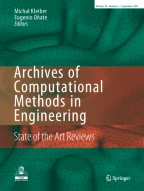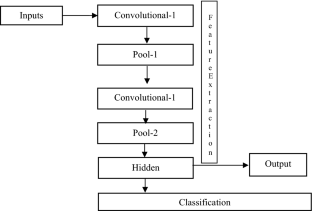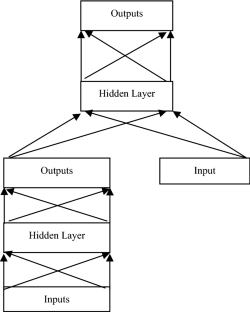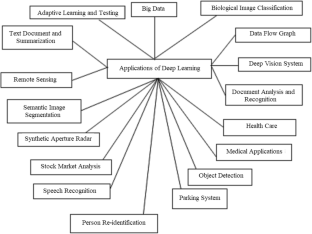A Survey of Deep Learning and Its Applications: A New Paradigm to Machine Learning

Nowadays, deep learning is a current and a stimulating field of machine learning. Deep learning is the most effective, supervised, time and cost efficient machine learning approach. Deep learning is not a restricted learning approach, but it abides various procedures and topographies which can be applied to an immense speculum of complicated problems. The technique learns the illustrative and differential features in a very stratified way. Deep learning methods have made a significant breakthrough with appreciable performance in a wide variety of applications with useful security tools. It is considered to be the best choice for discovering complex architecture in high-dimensional data by employing back propagation algorithm. As deep learning has made significant advancements and tremendous performance in numerous applications, the widely used domains of deep learning are business, science and government which further includes adaptive testing, biological image classification, computer vision, cancer detection, natural language processing, object detection, face recognition, handwriting recognition, speech recognition, stock market analysis, smart city and many more. This paper focuses on the concepts of deep learning, its basic and advanced architectures, techniques, motivational aspects, characteristics and the limitations. The paper also presents the major differences between the deep learning, classical machine learning and conventional learning approaches and the major challenges ahead. The main intention of this paper is to explore and present chronologically, a comprehensive survey of the major applications of deep learning covering variety of areas, study of the techniques and architectures used and further the contribution of that respective application in the real world. Finally, the paper ends with the conclusion and future aspects.
This is a preview of subscription content, log in via an institution to check access.
Access this article
Springer+ Basic
€32.70 /Month
- Get 10 units per month
- Download Article/Chapter or eBook
- 1 Unit = 1 Article or 1 Chapter
- Cancel anytime
Buy Now
Price includes VAT (France)
Instant access to the full article PDF.
Rent this article via DeepDyve




Similar content being viewed by others

Deep Learning: An Application Perspective
Chapter © 2022

Deep Learning Theory Simplified
Chapter © 2020

A Review on Basic Deep Learning Technologies and Applications
Chapter © 2021
Explore related subjects
References
- Abadi M, Paul B, Jianmin C, Zhifeng C, Andy D, Jeffrey D, Matthieu D (2016) Tensorflow: a system for large-scale machine learning. In: The proceedings of the 12th USENIX symposium on operating systems design and implementation (OSDI’16), vol 16, pp 265–283
- Abbas Q, Ibrahim MEA, Jaffar MA (2018) A comprehensive review of recent advances on deep vision systems. Artif Intell Rev. https://doi.org/10.1007/s10462-018-9633-3ArticleGoogle Scholar
- Affonso C, Rossi ALD, Vieria FHA, Carvalho ACPDLFD (2017) Deep learning for biological image classification. Expert Syst Appl 85:114–122 ArticleGoogle Scholar
- Alwzwazy HA, Albehadili HA, Alwan YS, Islam NE (2016) Handwritten digit recognition using convolutional neural networks. In: Proceedings of international journal of innovative research in computer and communication engineering, vol 4(2), pp 1101–1106
- Amato G, Carrara F, Falchi F, Gennaro C, Meghini C, Vairo C (2017) Deep learning for decentralized parking lot occupancy detection. Expert Syst Appl 72:327–334 ArticleGoogle Scholar
- Araque O, Corcuera-Platas I, Sánchez-Rada JF, Iglesias CA (2017) Enhancing deep learning sentiment analysis with ensemble techniques in social applications. Expert Syst Appl 77:236–246 ArticleGoogle Scholar
- Ashiquzzaman A, Tushar AK (2017) Handwritten arabic numeral recognition using deep learning neural networks. In: Proceedings of IEEE international conference on imaging, vision & pattern recognition, pp 1–4. https://doi.org/10.1109/ICIVPR.2017.7890866
- Azar MY, Hamey L (2017) Text summarization using unsupervised deep learning. Expert Syst Appl 68:93–105 ArticleGoogle Scholar
- Chen XW, Lin X (2014) Big data deep learning: challenges and perspectives. IEEE 2:514–525. https://doi.org/10.1109/ACCESS.2014.2325029ArticleGoogle Scholar
- Chen CH, Lee CR, Lu WCH (2016) A mobile cloud framework for deep learning and its application to smart car camera. In: Proceedings of the international conference on internet of vehicles, pp 14–25. https://doi.org/10.1007/978-3-319-51969-22
- Chen LC, Papandreou G, Kokkinos I, Murphy K, Yuille AL (2018) Deeplab: semantic image segmentation with deep convolutional nets, atrous convolution, and fully connected CRFs. IEEE Trans Pattern Anal Mach Intell 40(4):834–848 ArticleGoogle Scholar
- Cheng D, Gong Y, Changb X, Shia W, Hauptmannb A, Zhenga N (2018) Deep feature learning via structured graph Laplacian embedding for person re-identification. Pattern Recogn 82:94–104 ArticleGoogle Scholar
- Chong E, Han C, Park FC (2017) Deep learning network for stock market analysis and prediction: methodology, data representations and case studies. Expert Syst Appl 83:187–205 ArticleGoogle Scholar
- Chu J, Srihari S (2014) Writer identification using a deep neural network. In: Proceedings of the 2014 Indian conference on computer vision graphics and image processing, pp 1–7
- Dai Y, Wang G (2018) A deep inference learning framework for healthcare. Pattern Recogn Lett. https://doi.org/10.1016/j.patrec.2018.02.009ArticleGoogle Scholar
- Dhieb T, Ouarda W, Boubaker H, Alilmi AM (2016) Deep neural network for online writer identification using Beta-elliptic model. In: Proceedings of the international joint conference on neural networks, pp 1863–1870
- Falcini F, Lami G, Costanza AM (2017) Deep learning in automotive software. IEEE Softw 34(3):56–63. https://doi.org/10.1109/MS.2017.79ArticleGoogle Scholar
- Gheisari M, Wang G, Bhuiyan MZA (2017) A survey on deep learning in big data. In: Proceedings of the IEEE international conference on embedded and ubiquitous computing (EUC), pp 1–8
- Ghosh MMA, Maghari AY (2017) A comparative study on handwriting digit recognition using neural networks. In: Proceedings of the promising electronic technologies (ICPET), pp 77–81
- Gurjar N, Sudholt S, Fink GA (2018) Learning deep representations for word spotting under weak supervision. In: Proceedings of the 13th IAPR international workshop on document analysis systems (DAS), pp 7s–12s
- Hamid OA, Jiang H (2013) Rapid and effective speaker adaptation of convolutional neural network based models for speech recognition. In: INTERSPEECH, pp 1248–1252
- Ignatov A (2018) Real-time human activity recognition from accelerometer data using convolutional neural networks. Appl Soft Comput 62:915–922 ArticleGoogle Scholar
- Jia X (2017) image recognition method based on deep learning. In: Proceedings of the 29th IEEE, Chinese control and decision conference (CCDC), pp 4730–4735
- Kannan RJ, Subramanian S (2015) An adaptive approach of tamil character recognition using deep learning with big data-a survey. Adv Intell Syst Comput: 557–567
- Kaushal M, Khehra B, Sharma A (2018) Soft computing based object detection and tracking approaches: state-of-the-art survey. Appl Soft Comput 70:423–464 ArticleGoogle Scholar
- Krishnan P, Dutta K, Jawahar CV (2018) Word spotting and recognition using deep embedding. In: Proceedings of 13th IAPR international workshop on document analysis systems (DAS). https://doi.org/10.1109/das.2018.70
- LeCun Y, Bengio Y, Hinton G (2015) Deep learning. Nature 521:1–10 ArticleMathSciNetGoogle Scholar
- Lee SH, Chan CS, Mayo SJ, Remagnino P (2017) How deep learning extracts and learns leaf features for plant classification. Pattern Recogn 71:1–13 ArticleGoogle Scholar
- Ling ZH, Kang SY, Zen H, Senior A, Schuster M, Qian XJ, Meng HM, Deng L (2015) Deep learning for acoustic modeling in parametric speech generation: a systematic review of existing techniques and future trends. IEEE Signal Process Mag 32(3):35–52 ArticleGoogle Scholar
- Ling Y, Jin C, Guoru D, Ya T, Jian Y, Jiachen S (2018) Spectrum prediction based on Taguchi method in deep learning with long short-term memory. IEEE Access 6(1):45923–45933 Google Scholar
- Liu PH, Su SF, Chen MC, Hsiao CC (2015) Deep learning and its application to general image classification. In: Proceedings of the international conference on informatics and cybernetics for computational social systems, pp 1–4
- Looks M, Herreshoff M, Hutchins D, Norvig P (2017) Deep learning with dynamic computation graphs. In: Proceedings of the international conference on learning representation, pp 1–12
- Lopez D, Rivas E, Gualdron O (2017) Primary user characterization for cognitive radio wireless networks using a neural system based on deep learning. Artif Intell Rev: 1–27
- Luckow A, Cook M, Ashcraft N, Weill E, Djerekarov E, Vorster B (2017) Deep learning in the automotive industry: applications and tools. In: Proceedings of the IEEE international conference on big data, pp 3759–3768
- Makhmudov AZ, Abdukarimov SS (2016) Speech recognition using deep learning algorithms. In: Proceedings of the international conference on informatics: problems, methodology, technologies, pp 10–15
- Markovnikov N, Kipyatkova I, Karpov A, Filchenkov A (2018) Deep neural networks in russian speech recognition. Artif Intell Nat Lang Commun Comput Inf Sci 789:54–67. https://doi.org/10.1007/978-3-319-71746-3_5ArticleGoogle Scholar
- Mohamed A, Dahl G, Geoffrey H (2009) Deep belief networks for phone recognition. In: Proceedings of the nips workshop on deep learning for speech recognition and related applications, pp 1–9
- Mohsen AM, El-Makky NM, Ghanem N (2017) Author identification using deep learning. In: Proceedings of the 15th IEEE international conference on machine learning and applications, pp 898–903
- Nguyen HD, Le AD, Nakagawa M (2015) Deep neural networks for recognizing online handwritten mathematical symbols. In: Proceedings of the 3rd IAPR IEEE Asian conference on pattern recognition (ACPR), pp 121–125
- Noda K, Yamaguchi Y, Nakadai K, Okuno HG, Ogata T (2015) Audio-visual speech recognition using deep learning. Appl Intell 42(4):722–737 ArticleGoogle Scholar
- Nweke HF, Teh YW, Al-garadi MA, Alo UR (2018) Deep learning algorithms for human activity recognition using mobile and wearable sensor networks: state of the art and research challenges. Expert Syst Appl: 1–87
- Poznanski A, Wolf L (2016) CNN-N-gram for handwriting word recognition. In: Proceedings of the IEEE conference on computer vision and pattern recognition, pp 2305–2314
- Prabhanjan S, Dinesh R (2017) deep learning approach for devanagari script recognition. Proc Int J Image Graph 17(3):1750016. https://doi.org/10.1142/S0219467817500164ArticleGoogle Scholar
- Puthussery AR, Haradi KP, Erol BA, Benavidez P, Rad P, Jamshidi M (2017) A deep vision landmark framework for robot navigation. In: Proceedings of the system of systems engineering conference, pp 1–6
- Razzak MI, Naz S, Zaib A (2018) Deep learning for medical image processing: overview, challenges and the future. Classif BioApps Lect Notes Comput Vis Biomech 26:323–350 Google Scholar
- Ripoll VJR, Wojdel A, Romero A, Ramos P, Brugada J (2016) ECG assessment based on neural networks with pertaining. Appl Soft Comput 49:399–406 ArticleGoogle Scholar
- Rudin F, Li GJ, Wang K (2017) An algorithm for power system fault analysis based on convolutional deep learning neural networks. Int J Res Educ Sci Methods 5(9):11–18 Google Scholar
- Salazar F, Toledo MA, González JM, Oñate E (2012) Early detection of anomalies in dam performance: a methodology based on boosted regression trees. Struct Control Health Monit 24(11):2012–2017 ArticleGoogle Scholar
- Salazar F, Toledo MA, Morán R, Oñate E (2015) An empirical comparison of machine learning techniques for dam behaviour modelling structural safety. Struct Saf 56:9–17 ArticleGoogle Scholar
- Salazar F, Toledo MA, Oñate E, Suárez B (2016) Interpretation of dam deformation and leakage with boosted regression trees. Eng Struct 119:230–251 ArticleGoogle Scholar
- Salazar F, Oñate E, Toledo MA (2017a) A machine learning based methodology for anomaly detection in dam behaviour, CIMNE, monograph no M170, 250 pp, Barcelona
- Salazar F, Moran R, Toledo MA, Oñate E (2017) Data-based models for the prediction of dam behaviour: a review and some methodological considerations. Arch Comput Methods Eng 24(1):1–21 ArticleMATHGoogle Scholar
- Sanakoyeu A, Bautista MA, Ommer B (2018) Deep unsupervised learning of visual similarities. Pattern Recogn 78:331–343 ArticleGoogle Scholar
- Santana LMQD, Santos RM, Matos LN, Macedo HT (2018) Deep neural networks for acoustic modeling in the presence of noise. IEEE Latin Am Trans 16(3):918–925 ArticleGoogle Scholar
- Serizel RGD (2016) Deep-neural network approaches for speech recognition with heterogeneous groups of speakers including children. Nat Lang Eng 1(3):1–26 Google Scholar
- Soniya, Paul S, Singh L (2015) A review on advances in deep learning. In: Proceedings of IEEE workshop on computational intelligence: theories, applications and future directions (WCI), pp 1–6. https://doi.org/10.1109/wci.2015.7495514
- Sudholt S, Fink GA (2017) Attribute CNNs for word spotting in handwritten documents. Int J Doc Anal Recognit (IJDAR). https://doi.org/10.1007/s10032-018-0295-0ArticleGoogle Scholar
- Thomas S, Chatelain C, Heutte L, Paquet T, Kessentini Y (2015) A deep HMM model for multiple keywords spotting in handwritten documents. Pattern Anal Appl 18(4):1003–1015 ArticleMathSciNetGoogle Scholar
- Ucar A, Demir Y, Guzelis C (2017) Object recognition and detection with deep learning for autonomous driving applications. Int Trans Soc Model Simul 93(9):759–769 ArticleGoogle Scholar
- Vasconcelos CN, Vasconcwlos BN (2017) Experiment using deep learning for dermoscopy image analysis. Pattern Recognit Lett. https://doi.org/10.1016/j.patrec.2017.11.005ArticleGoogle Scholar
- Wang Y, Liu M, Bao Z (2016) Deep learning neural network for power system fault diagnosis. In: Proceedings of the 35th Chinese control conference, 1–6
- Wang T, Wen CK, Wang H, Gao F, Jiang F, Jin S (2017) Deep learning for wireless physical layer: opportunities and challenges. China Commun 14(11):92–111 ArticleGoogle Scholar
- Wicht B, Fischer A, Hennebert J (2016) Deep learning features for handwritten keyword spotting. In: Proceedings of the 23rd international conference on pattern recognition (ICPR). https://doi.org/10.1109/icpr.2016.7900165
- Wu Z, Swietojanski P, Veaux C, Renals S, King S (2015) A study of speaker adaptation for DNN-based speech synthesis. In: Proceedings of the sixteenth annual conference of the international speech communication association, pp 879–883
- Xiao B, Xiong J, Shi Y (2016) Novel applications of deep learning hidden features for adaptive testing. In: Proceedings of the 21st Asia and South Pacific design automation conference, pp 743–748
- Xue S, Hamid OA, Jiang H, Dai L, Liu Q (2014) Fast adaptation of deep neural network based on discriminant codes for speech recognition. IEEE/ACM Trans Audio Speech Lang Process 22(12):1713–1725 ArticleGoogle Scholar
- Yadav U, Verma S, Xaxa DK, Mahobiya C (2017) A deep learning based character recognition system from multimedia document. In: Proceedings of the international conference on innovations in power and advanced computing technologies, pp 1–7
- Yonel B, Mason E, Yazici B (2017) Deep learning for passive synthetic aperture radar. IEEE J Sel Top Signal Process 12(1):90–103 ArticleGoogle Scholar
- Yu X, Wu X, Luo C, Ren P (2017) Deep learning in remote sensing scene classification: a data augmentation enhanced convolutional neural network framework. GIScience & Remote Sens: 1–19
- Yuan X, Xie L, Abouelenien M (2018) A regularized ensemble framework of deep learning for cancer detection from multi-class, imbalanced training data. Pattern Recogn 77:160–172 ArticleGoogle Scholar
- Zhang L, Zhang L, Du B (2016) Deep learning for remote sensing data: a technical tutorial on the state of the art. IEEE Geosci Remote Sens Mag 4(2):22–40 ArticleGoogle Scholar
- Zhao C, Chen K, Wei Z, Chen Y, Miao D, Wang W (2018) Multilevel triplet deep learning model for person reidentification. Pattern Recogn Lett. https://doi.org/10.1016/j.patrec.2018.04.029ArticleGoogle Scholar
- Zhong SH, Li Y, Le B (2015) Query oriented unsupervised multi document summarization via deep learning. Expert Syst Appl, pp 1–10
- Zhou X, Gong W, Fu W, Du F (2017) Application of deep learning in object detection. In: Proceedings of the IEEE/ACIS 16th international conference on computer and information science (ICIS), pp 631–634
- Zhu XX, Tuia D, Mou L, Xia GS, Zhang L, Xu F, Fraundorfer F (2017) Deep learning in remote sensing: a comprehensive review and list of resources. IEEE Geosci Remote Sens Mag 5(4):8–36 ArticleGoogle Scholar
- Zulkarneev M, Grigoryan R, Shamraev N (2013) Acoustic modeling with deep belief networks for Russian speech recognition. In: Proceedings of the international conference on speech and computer, pp 17–24
- Chandra B, Sharma RK (2016) Deep learning withadaptive learning rate using Laplacian score, expert systems with applications. Int J 63(C):1–7 Google Scholar
- Wu Z, Swietozanski P, Veaux C, Renals S (2015) A study of speaker adaptation for DNN-based speech synthesis. In: Proceedings of the interspeech conference, pp 1–5
- Xing L, Qiao Y (2016) DeepWriter: a multi-stream deep CNN for text-independent writer identification. Comput Vis Pattern Recognit. arXiv:1606.06472
- Roy P, Bhunia AK, Das A, Dey P (2016) HMM-based indic handwritten word recognition using zone segmentation. Pattern Recognit 60:1057–1075. https://doi.org/10.1016/j.patcog.2016.04.012ArticleGoogle Scholar
- Loh BCS, Then PHH (2017) Deep learning for cardiac computer-aided diagnosis: benefits, issues & solutions. M Health. https://doi.org/10.21037/mhealth.2017.09.01ArticleGoogle Scholar
- Cireşan D, Meier U, Schmidhuber J (2012) Multi-column deep neural networks for image classification. In: Proceedings of the IEEE conference on computer vision and pattern recognition, pp 3642–3649
- Ota K, Dao MS, Mezaris V, Natale FGBD (2017) Deep learning for mobile multimedia: a survey. ACM Trans Multimed Comput Commun Appl (TOMM) (TOMM) 13(3s):34 Google Scholar
- Wang L, Sng D (2015) Deep learning algorithms with applications to video analytics for a smart city: a survey. arXiv, preprint arXiv: 1512.03131
- Papakostas M, Giannakopoulos T (2018) Speech-music discrimination using deep visual feature extractors. Expert Syst Appl 114:334–344 ArticleGoogle Scholar
- Arevalo A, Niño J, Hernández G, Sandoval J (2016) High-frequency trading strategy based on deep neural networks. In: Proceedings of the international conference on intelligent computing, pp 424–436
- Zhang XL, Wu J (2013) Denoising deep neural networks based voice activity detection. In: Proceedings of the IEEE international conference on acoustics, speech and signal processing, pp 853–857
Author information
Authors and Affiliations
- Department of Computational Sciences, Maharaja Ranjit Singh Punjab Technical University, Bathinda, Punjab, India Shaveta Dargan & Munish Kumar
- College of Business, University of Dallas, Irving, USA Maruthi Rohit Ayyagari
- Department of Computer Applications, Shaheed Bhagat Singh State Technical Campus, Ferozepur, Punjab, India Gulshan Kumar
- Shaveta Dargan





